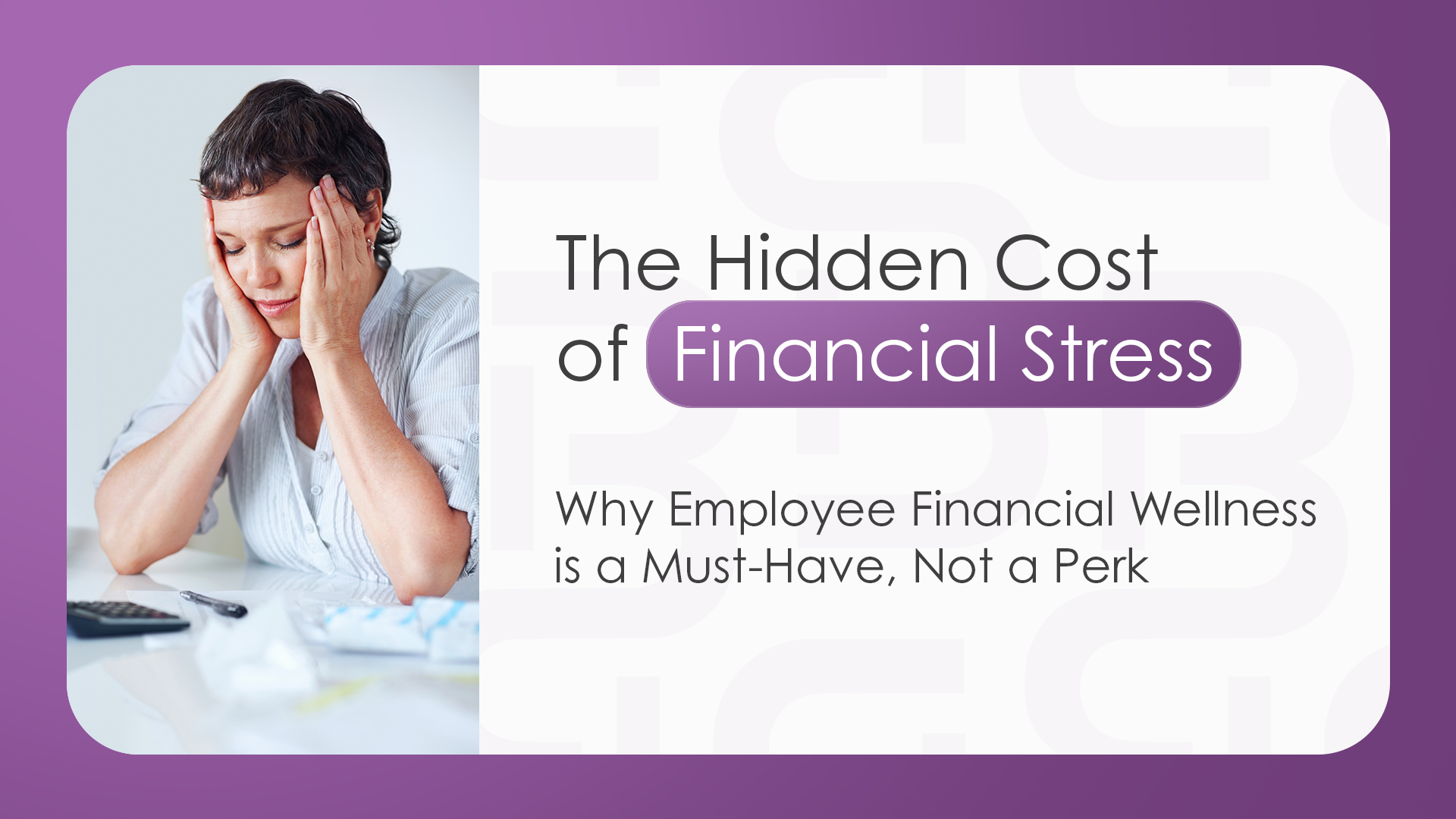Money worries don’t clock out when employees clock in. Financial stress follows employees to work, affecting their focus, engagement, and overall productivity. With rising costs of living, student loan debt, and economic uncertainty, financial wellness is becoming a critical factor in workplace performance.
How Financial Stress Impacts Workplace Productivity
Research has consistently shown that financial stress is a major disruptor in the workplace, affecting both individual employees and overall business performance. When financial worries become overwhelming, employees struggle to maintain focus, engagement, and productivity. The following points highlight keyways financial stress negatively impacts the workplace, as supported by academic sources.
Decreased Focus & Performance
When employees are preoccupied with financial struggles, concentration takes a hit. This leads to mistakes, poor decision-making, and a decline in overall output. Employees may also feel more mentally exhausted, leading to a lack of creativity and problem-solving skills. Instead of focusing on their work, their minds are occupied with thoughts of debt, overdue bills, or financial instability.
Absenteeism & Presenteeism
Late arrivals, extended breaks, and even using work hours to handle financial matters become common behaviors, reducing efficiency across teams. Some employees may resort to taking unplanned absences due to the mental exhaustion caused by financial stress. Others may physically show up to work but be unable to function at full capacity—a phenomenon known as presenteeism, which leads to decreased productivity and engagement.
Higher Turnover & Low Morale
Employees without financial stability often seek better-paying jobs elsewhere. If they don’t feel supported, they leave—driving up hiring and training costs. A revolving door of employees can negatively impact company culture, collaboration, and team dynamics. When employees see their colleagues leaving for better financial opportunities, it may create a sense of dissatisfaction among those who stay.
Health Declines & Rising Costs
Financial stress doesn’t just weigh on the mind—it takes a toll on the body. The strain of constant worry can lead to fatigue, disrupted sleep, and weakened immune function, making employees more vulnerable to illness. Over time, the cumulative effects of financial anxiety can contribute to serious health issues, increasing the likelihood of medical leave and higher healthcare costs for both employees and employers. When financial insecurity becomes a persistent burden, it creates a ripple effect—impacting well-being, performance, and ultimately, workplace productivity.
Ignoring financial stress in the workplace comes at a cost—but employers have the power to change that by implementing meaningful financial wellness programs.
Implement Financial Wellness Programs
Providing access to financial literacy workshops, budgeting tools, and one-on-one financial coaching can empower employees to take control of their financial future. Employers can partner with financial institutions or advisors to provide personalized guidance and actionable strategies for managing debt, saving, and investing.
Strengthen Retirement & Savings Benefits
Financial security starts with structured savings plans. Employers can offer:
✔ Group RRSPs – Automatic payroll contributions make saving easier, with workplace seminars to improve financial literacy.
✔ Defined Benefit (DB) Plans – Guaranteed retirement income based on salary and years of service, providing long-term stability.
✔ Defined Contribution (DC) Plans – Employees control their investment choices while employers provide fixed contributions.
✔ Deferred Profit Sharing Plans (DPSPs) – A flexible option where employers contribute during profitable years, helping employees grow tax-sheltered savings.
Offer Competitive & Fair Compensation
Ensuring salaries are market-competitive and adjusted for inflation is one of the strongest ways to reduce financial anxiety among employees. Employers should also consider performance-based bonuses and cost- of-living adjustments to help employees feel financially secure.
Provide Flexible Pay Options
Early wage access and earned wage programs help employees avoid predatory loans and reduce paycheck- to-paycheck stress. By offering on-demand pay solutions, companies can empower employees to access their earnings when needed without relying on high-interest payday loans.
Create an Open Dialogue About Financial Wellness
Encouraging open conversations about financial stress in the workplace can help remove the stigma surrounding money struggles. Employers can introduce anonymous surveys, employee resource groups, and confidential financial counseling to ensure employees feel supported rather than judged.
The Bottom Line
Financially stressed employees cost businesses more in lost productivity, absenteeism, and turnover. Investing in employee financial wellness isn’t just the right thing to do—it’s a smart business strategy that creates a healthier, more engaged workforce.
Companies that prioritize financial wellness initiatives benefit from increased retention, improved morale, and a stronger employer brand. By taking proactive steps to address employee financial stress, businesses can create an environment where employees thrive—both personally and professionally.
About Benchmark
At Benchmark, we specialize in designing and managing Total Compensation & Rewards programs that help businesses attract, retain, and support their workforce. We understand that employee financial wellness isn’t just about offering a paycheck—it’s about providing the right tools and benefits to create financial security, reduce stress, and enhance productivity. Our solutions, including Group RRSPs, Defined Benefit and Defined Contribution pension plans, and financial wellness programs, are designed to empower employees to take control of their financial future while supporting organizational success.








